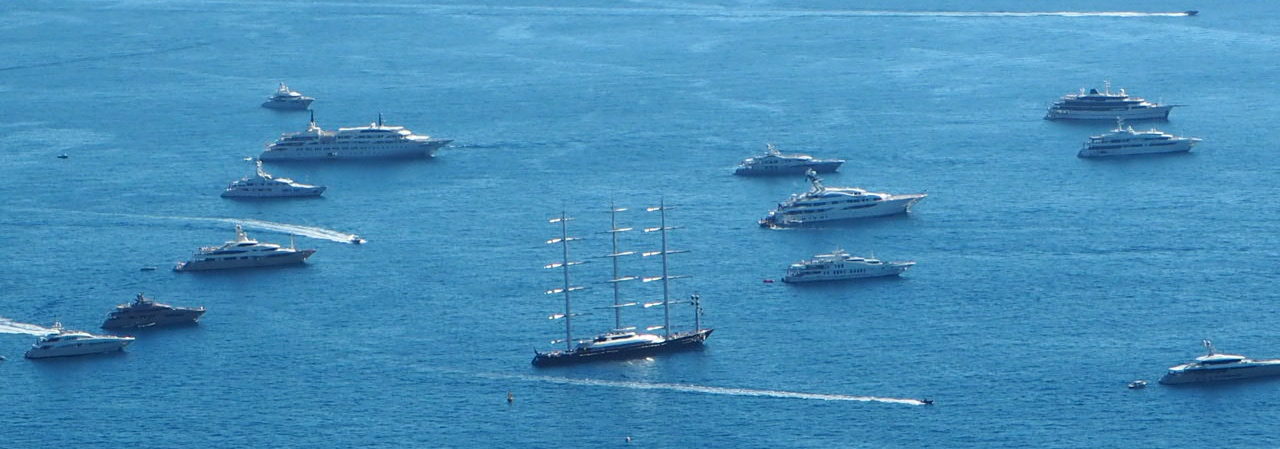More and more entrepreneurs are planning to buy a yacht, often on lease, to conduct business meetings on it, rent it to entrepreneurs for promotional purposes. They also plan to make it available for private use by the management and shareholders of the company that is also its owner. It sounds interesting …? But is it possible at all and how to account for the expenses? And what about the IRS?
How to settle expenses related to business activity conducted on a yacht?
According to Art. 86 sec. 1 of the Act of March 11, 2004 on tax on goods and services (Journal of Laws of 2022, item 931, 974, 1137, 1301, 1488, 1561, 2180), to the extent that goods and services are used by perform taxable activities, the taxpayer has the right to reduce the amount of tax due by the amount of input tax.
Unfortunately, we often have to do with incurring expenses „on the borderline” of taxable activities and other purposes. Such an example may be incurring expenses for a seagoing yacht, where business activity is conducted. Suppose the yacht in question bears the logo of the taxpayer’s company. It is large and placed in a visible place. The yacht serves as a mobile office that moves through territorial waters and calls at ports in countries relevant to the market that is of interest to the taxpayer at a given moment. The taxpayer uses the yacht for office purposes, i.e. business meetings, trainings, signing contracts, etc. are held on it, because it has „office” rooms with standard office equipment.
In connection with the above, the taxpayer does not have to make expenses related to the rental and maintenance of office space. In addition, the yacht is also accommodation facilities for the taxpayer, which are made available to persons acting for the company in connection with the performance of their duties. The taxpayer also plans to organize training or incentive events for senior employees there. Well, now comes the question.
Is the taxpayer entitled to deduct input tax on expenses for the use of the yacht?
The answer is – unfortunately not.
In accordance with the individual interpretations of the Director of the National Tax Information, including the interpretation of July 24, 2017, 0111-KDIB3-1.4012.42.2017.1.WN , placing the company logo on the yacht and moving the yacht marked in this way in the Mediterranean Sea is associated with with a limited circle of people to whom the information about the taxpayer will reach. Marking the yacht with the company’s logo does not carry information about the taxpayer’s products. The yacht does not perform office functions and is not an office. Taking into account the long period of using the yacht, the narrow group of recipients of the products and the manner of using the yacht described above, the expenses related to the use of the yacht are not related to taxable activities performed as part of the taxpayer’s core business.
Moving on a yacht, staying overnight on it and the potential possibility of conducting business talks on board, without taking other actions that may encourage future contractors to establish business contacts on the yacht, undermines the existence of the necessary cause and effect relationship. It is necessary to deduct the tax in this case. In other words: a yacht is synonymous with luxury, attractiveness, recreation and relaxation, so input tax cannot be deducted. Business is just an add-on.
To sum up, the tax can be deducted by a registered, active VAT payer. On the other hand, the goods and services with which the input tax is connected should be used to perform taxable activities (i.e. activities that give rise to a tax liability). Therefore, it is not possible to reduce the amount of undue tax by the amount of input tax related to goods and services that are not used for taxable activities. Thus, in the case of using activities exempt from VAT and not subject to this tax. An extremely important condition, which also enables the exercise of the right to deduct VAT, is the connection of purchases with taxable activities performed. It should be noted, however, that the legislator does not specify to what extent and how the goods and services should be used for taxable activities. This would allow the taxpayer to deduct input tax. This relationship can be direct or indirect.
Holiday provision of company yacht rental services
During the holiday season, it is often the case that companies decide to link the purchased yacht with their business activity by providing rental services for tourists. However, here comes the question. Does such a seasonal solution combine financial and tax benefits for the company that owns the yacht? How, then, should these expenses be treated in terms of income tax and VAT?
Let us remember that the yacht is primarily used for recreation, sport and tourism. When companies decide to buy a yacht, they put their company logo on it so that it also meets advertising purposes in Polish and foreign ports. However, in order to grant a taxable person the right to deduct VAT, there must be a link between the specific transaction giving rise to the charge and one or more output transactions giving rise to the right to deduct.
If the main purpose of using the yacht is business meetings and integration events, and not yacht charter, then it is not an economic purpose, but a recreational one. Therefore, one cannot speak here of a close and direct connection between the rental of a yacht and specific activities of the taxpayer, which would generate output tax. This view was presented by the Supreme Administrative Court in the judgment reference number I FSK 410/18 . The tax authorities point out that expenses related to the maintenance and operation of a yacht (not related to rental), „undoubtedly synonymous with luxury, attractiveness, recreation and relaxation”, serve rather to represent the taxpayer and build his prestige than to advertise. For this reason, they cannot be tax deductible.
The situation would be different if the yacht was purchased for the purpose of providing continuous rental services for profit at applicable market prices. Then the taxpayer has the right to deduct the expenses for the purchase of the yacht from the income. The yacht can also depreciate. However, if the taxpayer meets the status of a small taxpayer, he may also make a one-time depreciation write-off. This is, among others, individual interpretation of the director of KIS of April 17, 2020 ( file reference number 0111-KDIB2-1.4010.20.2020.1.EN ).
To sum up, the taxpayer may invest the accumulated funds in the purchase of a yacht, but he will only settle it for tax purposes if he uses it for commercial purposes, e.g. for charter. In such a situation, the taxpayer should remember to make a proper PKD entry in the CEIDG or the National Court Register.
When expenses for advertising the company on the yacht will be a tax expense?
The combination of marketing and advertising activities with ensuring relaxation for customers on board a yacht purchased under lease (financial or operational) contributes to modernizing the image of the company that owns the yacht.
For this purpose, the company, for its own promotion, participates, for example, in regattas or rents and leases a yacht by expanding its activity (indicating PKD) to inland waterway passenger transport, rental of cruise boats and yachts, passenger inland waterway vessels with a crew, lease of means of water transport without crew. Therefore, in this case, the question arises how to settle the leasing installments and expenses related to the preparation of the yacht for meetings and meetings? This includes catering services, purchase of food, beverages, purchase of fuel, oils, fees for yacht inspections and other related to its use, and yacht rental services provided to entrepreneurs for purposes related to conducting promotional activities and to natural persons for private purposes.
Answering this question, it should be noted that the company assumed from the beginning that the yacht would combine the company’s marketing and advertising activities with its activities on the yacht. This means that all expenses related to owning and maintaining a yacht are related to the income generated from its use. Therefore, regardless of the form of the leasing contract, the company will retain the right to deduct input tax, which will result from VAT invoices regarding leasing installments for the use of the yacht. Based on Article. 86 sec. 1 of the VAT Act, provided that there are no negative premises listed in Art. 88 of this Act, the company also has the full right to deduct VAT on expenses incurred for fuel and current fees incurred for the maintenance and use of the yacht.
According to Art. 88 sec. 1 point 4 lit. b of the VAT Act, the taxpayer does not have the right to reduce the amount or refund the difference of the tax due in the case of purchasing accommodation and catering services, with the exception of the purchase of ready meals for passengers by taxpayers providing passenger transport services. Therefore, the company will also be entitled to deduct input tax on the purchase of food and beverages served to guests during meetings and meetings, as these expenses will be indirectly related to VAT-taxable activities.
In addition, the company also has the right to deduct input tax resulting from VAT invoices documenting catering services consisting in the preparation and delivery of ready-to-order meals or the organization of parties. This is because the place of consumption of ready meals in the place indicated by the company, which is not the place of their preparation. However, in the scope of renting and leasing a yacht to entities using the yacht, regardless of the type of leasing contract, it will be obliged to issue VAT invoices with the basic rate of 23%, qualifying this rental as a rental of sports and recreational equipment.
Therefore…
To sum up, as long as the yacht is used by the taxpayer to obtain an additional source of income and for economic activity subject to VAT, it will be possible to deduct the input tax resulting from the VAT invoice documenting the purchase of the yacht .

Photo by Christo Anestev from Pixabay

